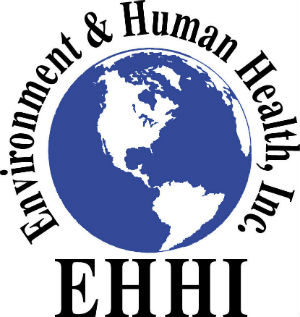Pesticides
The Preemption Issue
Safe Lawns for Healthy Communities: What the Lawn-Care Pesticide Preemption Law Means for Cities and Towns
Download Full Text of BrochureFact Sheet from Beyond Pesticides: States with Pesticide Preemption Laws
The following do NOT have pesticide preemption laws: Alaska; South Dakota; Hawaii; Maine; Maryland; Nevada; Utah; Vermont; Wyoming; and the Distict of Columbia (not a state).
What is the lawn-care pesticide preemption law and what does it mean to Connecticut towns?Why is there a preemption law in Connecticut and 40 other states? When the United States Supreme Court ruled that federal pesticide law does not usurp the power of local governments in 1991 it compelled lobbyists for the lawn-care chemical industry to descend on state capitals to argue for preemption legislation. For those 41 states where the pesticide industry got the preemption law passed, it means that no town in that state can have stricter lawn-care pesticide laws than the state government.
Why is this a problem for the states that have a lawn-care pesticide preemption law?
We have some towns in Connecticut that are almost entirely on wells. Some of those towns might choose to have organic lawn care methods used in their towns to protect their drinking water. With the lawn-care pesticide preemption law in place, no town in Connecticut presently has the right to require organic land care methods if they chose to.
Why should towns be allowed to control their own lawn-care pesticide policies?
The laws in the United States are written so that the federal government laws set the minimum standards for the country and then state laws can be stricter — not less strict — and town laws can be stricter than the state — but not less strict. However, the tobacco and the pesticide industries flipped this so that they could control their product sales across the state. And so now, with the preemption law in place in Connecticut, no town can have stricter lawn-care pesticide laws than the state — not the other way around — as laws are intended.
Why should Mayors and First Selectmen want legislation that would enable them to have healthier lawn-care methods in their towns if they so choose?
Removing the lawn-care pesticide preemption law from the Connecticut statutes will allow the Mayors and First Selectman to have the right to chose what is best for their town or city. Removing the lawn-care preemption law allows the towns to do what is best for that town — it does not require anything.
The Actual Preemption Connecticut State Statute
Sec. 22a-54. Pesticide applicators, certification, classification, notice, fees; reciprocity; financial responsibility; aircraft, tree, public employee applicators. (a) No individual shall use or supervise the use of any restricted use pesticide within this state at any time without a private or commercial certificate or permit issued in accordance with the provisions of this section, unless the use is under the direct supervision of a certified applicator; provided, any pesticide classified for restricted use by the administrator of the United States Environmental Protection Agency shall be used only by a certified applicator or under the direct supervision of a certified applicator. The commissioner shall have exclusive authority in the regulation of pesticide spraying, including, but not limited to, practices and procedures prior to and during any spraying, except as provided in section 22a-66z. The commissioner may by regulations adopted in accordance with the provisions of chapter 54 establish procedures for municipalities to designate watercourses or other sources of water which applicators may draw upon for pesticide spraying.Connecticut organizations for safe lawns that want to rid the state of lawn-care pesticide preemption laws:
Rivers Alliance of ConnecticutSierra Club – Connecticut Chapter
Watershed Partnership
Environment and Human Health, Inc.
Citizens Campaign for the Environment
Milford Environmental Concerns Coalition
Friends of Greenwich Harbor
Northeast Organic Farming Association of Connecticut
The Menunkatuck Audubon Society
Ecological Health Organization, Inc.
Farmington River Watershed Association
Toxics Action Center
Sustainable Stamford
Quinnipiac River Watershed Association
Farmington Land Trust
